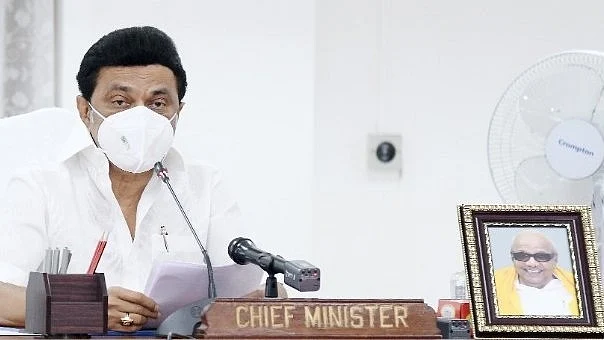TN CM Stalin likely to head Temple Advisory Committee
Tamil Nadu chief minister, M.K. Stalin is likely to head the state-level temple advisory committee to be constituted in the near future.

Tamil Nadu chief minister, M.K. Stalin is likely to head the state-level temple advisory committee to be constituted in the near future. The Hindu Religious and Charitable Endowments (HR&CE) minister P.K. Sekar Babu will be the vice-chairman of the committee.
Sources in the HR&CE department told IANS that the committee would be constituted under Section 7 of the Hindu Religious and Charitable Endowment (HR&CE) Act.
The number of non-official members to be included in the committee is not yet confirmed but a person from the Scheduled Caste would be a member. Commissioner of HR &CE would be ex-officio member secretary and the secretary in charge.
Governor Banwarilal Purohit in his address in the Tamil Nadu assembly on Monday had mentioned the formation of an advisory committee for all Major Hindu temples. Sources indicated that the major temples named in the policy address could be interpreted as those with an annual income of Rs 10 lakh and above.
According to the HR&CE department sources, there are 331 temples that have an annual income of Rs 10 lakh or above and 47 temples that have an annual income of Rs 50 lakh and above.
It may be noted that such an advisory committee was established in 2012 and its tenure ended in 2015 but HR&CE officials told IANS that there were no income limits to be included in the earlier advisory committee constituted in 2012.
The Tamil Nadu government is already in the process of recovering land which was lost or being encroached by several people and groups including charitable trusts and societies and with the constitution of a state-level temple advisory committee, the political leadership could understand the nuances of temple management.
The non-official members who could be included in the temple advisory committee are likely to be drawn from industrialists who have contributed sizably to the temples of the state as well as retired high court judges. The draft of the advisory committee, according to officials have specifically mentioned that those with a criminal past as well as those who are involved in the subletting of temple land as representatives of trusts and societies are not included in the committee.
Follow us on: Facebook, Twitter, Google News, Instagram
Join our official telegram channel (@nationalherald) and stay updated with the latest headlines
